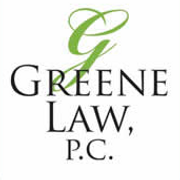
When an individual passes away, their estate will have to be settled—or divided—among beneficiaries. In some cases, surviving family members will have to go through probate court to officially determine how certain assets will be handled. While this additional step can be an extra burden to endure after losing a loved one, it’s designed to ensure all belongings are processed fairly and legally. If you’re involved with any stage of estate planning, here are a few important details you should know about probate court in Connecticut.
A Guide to Probate Court in Connecticut
What Does the Process Involve?
When probate is necessary, all assets will be frozen until an official determination is made by the court. Your hearing will take place at a regional Connecticut Probate Court. These locations are designed to make the process as quick, direct, and informal as possible. During these hearings, a judge may name an executor, review listed assets, and make determinations as to who should benefit from these assets.
How Do I Know If Probate Court Will Be Necessary?
In Connecticut, probate is not required for “small estates.” Current law states that a small estate is one that does not exceed a value of $40,000. If the estate is valued above $40,000, you will likely have to go through probate court—even if a will exists.
Should I Hire an Attorney?
 While probate courts do provide a wealth of resources to streamline the process, clerks and other staff members are unable to provide legal advice. If your case involves any complicated matters, you should hire an estate planning attorney who understands the ins-and-outs of probate. For example, a lawyer can assist if beneficiaries are contesting a will, guardianship needs to be awarded, or if there are questions about outstanding taxes or debts from the deceased.
While probate courts do provide a wealth of resources to streamline the process, clerks and other staff members are unable to provide legal advice. If your case involves any complicated matters, you should hire an estate planning attorney who understands the ins-and-outs of probate. For example, a lawyer can assist if beneficiaries are contesting a will, guardianship needs to be awarded, or if there are questions about outstanding taxes or debts from the deceased.
How Can I Keep My Loved Ones Avoid Probate Court?
If you want to help your loved ones avoid probate court upon your death, it’s important to invest in proper estate planning measures. Having a will, for instance, can make it easy for the judge to determine which individuals receive specific assets. If you want to avoid probate court altogether, talk to an attorney about dividing assets through a trust.
When you need estate planning services, turn to Greene Law PC in Farmington, CT, for expert assistance. Specializing in family and estate law, these attorneys understand how to navigate Connecticut Probate Courts and will provide support at every step of the process to ensure valid results are achieved. This law firm can also help you prepare your estate by creating wills and living trusts. To learn more about these capabilities, visit this firm online or call (860) 676-1336.
About the Business
Have a question? Ask the experts!
Send your question

